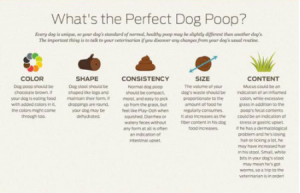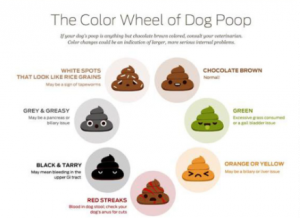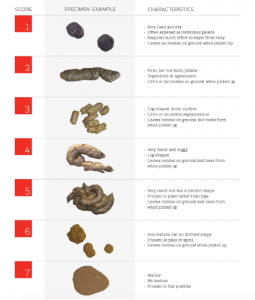What to Give a Dog With Diarrhea? [Causes & Treatment]

Diarrhea in dogs can be a frustrating and concerning issue for pet owners. Whether it’s a one-time occurrence or a chronic problem, dealing with a dog’s digestive issues can be challenging. Fortunately, various effective treatment options are available to help manage and resolve diarrhea in canines.
What Causes Diarrhea in Dogs?
Diarrhea in dogs can be caused by a variety of factors, including dietary indiscretion, food allergies, infections, medications, stress, and underlying medical conditions. Some common causes of diarrhea in dogs include:
- Dietary changes or indiscretion: Sudden changes in a dog’s diet or consuming something they shouldn’t, like table scraps or spoiled food, can lead to gastrointestinal upset and diarrhea.
- Infections: Bacterial, viral, or parasitic infections can cause inflammation in the digestive tract, leading to diarrhea.
- Food allergies or sensitivities: Certain ingredients in a dog’s diet can trigger an allergic reaction, resulting in digestive problems and diarrhea.
- Medications: Some medications, such as antibiotics, can disrupt the gut’s normal flora and lead to diarrhea.
- Stress: Stressful events or changes in a dog’s environment can impact their digestive system and cause diarrhea.
- Underlying medical conditions: Conditions like inflammatory bowel disease, pancreatitis, or malabsorption disorders can contribute to chronic or recurring diarrhea.
Understanding the potential causes of diarrhea in dogs is the first step in determining the appropriate treatment approach.
Identifying Diarrhea in Dogs
Diarrhea in dogs can manifest in various ways, and it’s essential to be able to recognize the signs. Typical symptoms of diarrhea in canines include:
- Frequent, loose, or watery stools
- Increased frequency of bowel movements
- Straining or difficulty passing stools
- Blood or mucus in the stool
- Abdominal discomfort or pain
- Loss of appetite
- Lethargy or decreased energy levels
Monitoring your dog’s bowel movements and overall behavior is important to identify any changes or concerns.
Understanding Your Dog’s Health via their Poop
A dog’s stool can provide valuable insights into their overall health and digestive function. By observing the color, consistency, and other characteristics of your dog’s poop, you can gain a better understanding of their health status. Some key things to look for include:
- Color: Healthy dog poop should be brown in color. Changes in color, such as yellow, green, or black, can indicate underlying issues.
- Consistency: Normal dog poop should be firm and well-formed. Loose, watery, or overly soft stools may indicate diarrhea or other digestive problems.
- Frequency: Most dogs have one to two bowel movements per day. Increased or decreased frequency can be a sign of a problem.
- Odor: While dog poop does have a distinct odor, an unusually strong or foul smell may suggest an underlying condition.
- Presence of blood or mucus: Blood or mucus in the stool can be a sign of inflammation, infection, or other gastrointestinal issues.
By closely monitoring your dog’s poop, you can identify potential problems early and seek veterinary care if necessary.


Source: Dog Diarrhea Survival Guide
When to Seek Veterinary Care
While some cases of diarrhea in dogs can be managed at home, it’s important to know when to seek veterinary attention. You should consult your veterinarian if:
- The diarrhea is severe, persistent, or accompanied by other concerning symptoms like vomiting, lethargy, or loss of appetite.
- If your dog is a puppy, senior, or has an underlying health condition, it may be more vulnerable to dehydration and other complications.
- The diarrhea is accompanied by blood, mucus, or other concerning signs.
- The diarrhea does not improve within a few days of home treatment.
- Your dog is acting distressed, uncomfortable, or unable to keep down food or water.
Seeking prompt veterinary care can help identify the underlying cause of the diarrhea and ensure your dog receives the appropriate treatment.
Diagnosing the Underlying Cause
When you take your dog to the veterinarian for diarrhea, they will typically begin by gathering information about your dog’s medical history, diet, and any recent changes or events that may have triggered the digestive issues. The veterinarian will then conduct a physical examination and may recommend the following diagnostic tests to determine the underlying cause:
- Fecal examination: A microscopic analysis of your dog’s stool sample can help identify the presence of parasites, bacteria, or other potential causes of diarrhea.
- Blood tests: Blood work can provide insights into your dog’s overall health, including any underlying conditions that may be contributing to the diarrhea.
- Imaging tests: X-rays or ultrasounds may be used to evaluate the digestive system and rule out any structural or anatomical issues.
- Endoscopy or biopsy: In some cases, the veterinarian may recommend a more invasive procedure, such as an endoscopy or biopsy, to obtain a sample of the gastrointestinal tract for further analysis.

Source: Dog Diarrhea Survival Guide
Effective Treatment Options
Once the underlying cause of your dog’s diarrhea has been determined, your veterinarian will recommend the most appropriate treatment approach. Some common and effective treatment options for diarrhea in dogs include:
Dietary Modifications
Adjusting your dog’s diet can be a simple and effective way to manage diarrhea. This may involve:
- Switching to a bland, easily digestible diet, such as boiled chicken and rice or a prescription gastrointestinal diet, for a short period to allow the digestive system to rest and recover.
- Gradually reintroducing your dog’s regular diet while monitoring for any recurrence of diarrhea.
- Identifying and eliminating any potential food allergens or sensitivities that may be contributing to the digestive issues.
- Incorporating probiotics or digestive enzymes to help restore the balance of gut flora and improve digestion.
Medications
Depending on the underlying cause, your veterinarian may prescribe one or more of the following medications to help manage your dog’s diarrhea:
- Anti-diarrheals: These medications, such as loperamide or bismuth subsalicylate, can help slow down the intestinal tract and reduce the frequency and severity of diarrhea.
- Antibiotics: If the diarrhea is caused by a bacterial infection, your veterinarian may prescribe antibiotics to eliminate the infection.
- Deworming medications: If parasites are the culprit, your dog may be prescribed deworming medications to eliminate the parasitic infection.
- Anti-inflammatory or immunosuppressant drugs: For conditions like inflammatory bowel disease, your veterinarian may recommend medications to help manage the condition and reduce inflammation.
It’s important to follow your veterinarian’s instructions carefully when administering any medications to your dog, as improper use can lead to adverse effects or further complications.
Supportive Care
In addition to the specific treatments mentioned above, your veterinarian may also recommend supportive care measures to help your dog’s recovery, such as:
- Providing a quiet, stress-free environment to allow your dog to rest and recover.
- Offering small, frequent meals of a bland, easily digestible diet to help soothe the digestive system.
- Administering anti-nausea medications or appetite stimulants, if needed, to help your dog maintain proper nutrition.
- Monitoring your dog’s hydration levels and ensuring they have access to clean, fresh water.
How Can Pet Insurance Help You if Your Dog Has a Diarrhea?
Pet insurance can be a valuable tool in managing the costs of treating dog diarrhea and other veterinary expenses. By having a pet insurance policy in place, you can have peace of mind knowing that you can provide medical care for your furry companion without worrying about the financial burden. Pet insurance can help cover the costs of veterinary consultations, diagnostic tests, medications, and even specialized treatments if required as long as conditions are not pre-existing.
Reimbursement
This method is the most common for pet insurance companies. You pay out of pocket for the veterinarian bill, and then the insurance company reimburses you for what’s covered under the insurance plan. The steps look like this.
- You pay the vet bill after your dog’s visit.
- You fill out the pet insurance claim form.
- Submit the claim form and other required documentation to the insurer.
- After the claim is approved, you will be reimbursed for eligible expenses.
What Does Odie Pet Insurance Cover?
Pet insurance covers various veterinary expenses, providing financial protection and peace of mind for pet owners. Here are the details of the coverage options offered by Odie Pet Insurance:
Illness & Injury Plan
The Illness & Injury Plan is an all-inclusive insurance plan designed to cover a wide range of medical needs for your pet. This plan includes comprehensive coverage for various illnesses, injuries, and veterinary services. Some of the covered items include:
- Veterinary exams and consultations
- Diagnostics (e.g., X-rays, lab tests)
- Prescribed medications
- Surgeries and hospitalization
- Rehabilitation, acupuncture, or chiropractic treatments
- Medically necessary supplies
- Euthanasia and cremation
The Wellness Plan
The Wellness Plan is a monthly membership that focuses on preventive care and covers routine veterinary services.
- Provides reimbursements for routine care items such as wellness visits (exams and vaccines), testing and parasite prevention, dental cleanings and at-home dental care, vitamins, supplements, and more.
- Through Odie’s partnership with Petivity, a leader in smart pet products and proactive care, Wellness Plan members can also receive reimbursements for Petivity devices and health kits, as well as eligible Purina food and supplements.
- Total reimbursement up to $700 per year.



